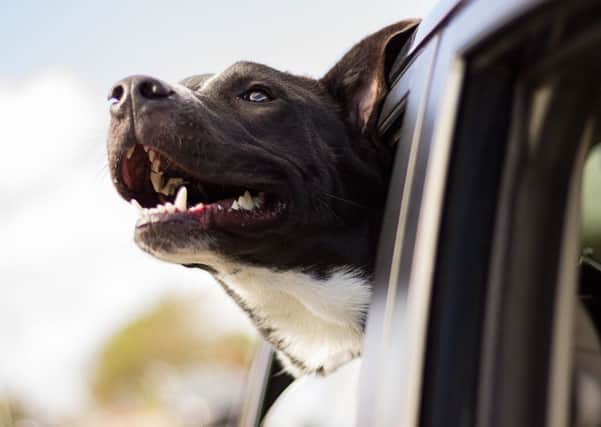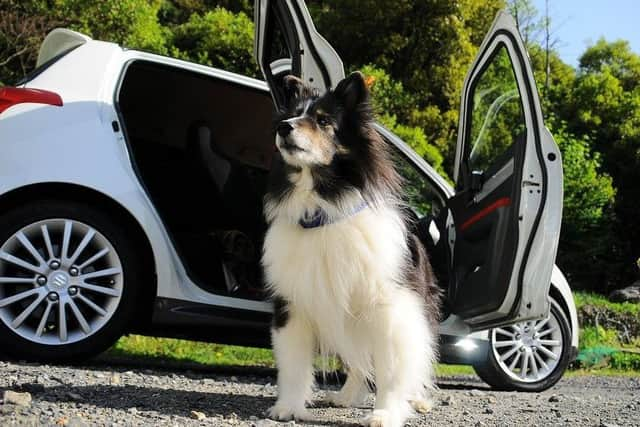Almost half of dog owners break Highway Code when driving with pets


An independent survey conducted by bootliner manufacturer Hatchbag revealed that 45% of dog owners were in breach of Section 57 of the Highway Code by neglecting to contain their pet with a suitable crate, harness or guard while travelling in a vehicle.
Unrestrained pets can cause considerable distraction, putting motorists at risk of driving without due care and attention—an offence that will invalidate most insurance policies. In addition, drivers face fines of up to £2,500, plus nine penalty points.
Advertisement
Hide AdAdvertisement
Hide AdThe most popular way of containing a dog in transit was with a ‘dog guard’.


The survey revealed that 29% used a dog guard to keep the dog restricted to the boot space.
Claudia Finamore, commercial manager at The Hatchbag Company says: “For the safety of all involved it is essential that dogs stay safely in the boot while travelling.
“Creating a ‘home from home’ in the boot with some familiar bedding and toys will help prevent dogs from becoming stressed in transit, while a wipe clean boot liner will protect the car’s interior from any accidents, travel sickness or chewing.”
Advertisement
Hide AdAdvertisement
Hide AdAround 24% use harnesses to secure their dog to the seat, while 13% opt for a dog crate, two options popular with pet care professionals.
Gemma Harrison, owner of dog walking service ‘Walkies with Marley’ says she uses both methods, depending on the size and temperament of the dog: “Personally, I would strongly advise using a crate, especially for younger giddy dogs, or where this isn’t possible, a doggy seatbelt. I do have some larger dogs that I am unable to crate due to their size, so I have them attached to a short dog seatbelt in order to keep them in place, safe, and at no risk of getting tangled.”
Travel sickness can pose a problem for some dogs and serve as a distraction to motorists. Ryan White, managing director of We Love Pets finds that pre-planning is key:
“The most important rule is to always plan your journey. Make sure you don’t feed the dog immediately before or after as it may cause them to have an unsettled stomach. Frequent short journeys are best and try to avoid lots of windy roads and roundabouts where possible.”
Advertisement
Hide AdAdvertisement
Hide AdLouise Self, dog home boarding representative at Barking Mad, offers further advice for travelling with dogs: “Open the window slightly to let in some air, drive carefully and be responsive to the dog’s needs. I find they like the radio or music on and soon relax and enjoy the journey.”